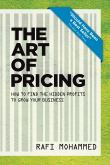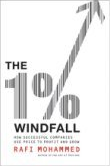Bad News...It's Going to Cost A Lot More Than a Few Quarters to Park Downtown
The price of parking downtown in Boston, as it is in most major cities, poses an interesting pricing anomaly: those lucky enough to find a meter space pay two dollars an hour while others that succumb to private lots pay $20 an hour (for a maximum of $35).
While demand for cheap metered spaces often exceeds supply – if you circle long enough, you’re bound to find a spot. And if you get tired of or don’t want to put up with the hassle, you can always pay a premium to park in a private lot. Since you would eventually find a metered spot, the primary value private lots offer is convenience. Private lots profit from those willing to dearly pay for hassle free parking.
Donald Shoup, a professor at UCLA and author of the book “The High Cost of Free Parking,” is an advocate of increasing the price of metered parking in high demand areas to as much as $10 an hour. Pricing in prime areas would be dynamic, meaning hourly prices would change by time of day. Donald, whose growing contingency of fans refer to him as a “parking lot rock star,” thinks the goal is to set prices in a manner that achieves an 85% occupancy rate of parking meter spaces. An 85% occupancy rate will make it much easier to find a vacant parking meter.
My first take on Professor Shoup’s theories was what’s wrong with the way things are today – diligent drivers eventually find a meter and others pay convenience premiums to private lots. And I wondered whether it’s right for the government to maximize profits on parking spots essentially owned by taxpayers. But my opinion changed after reading Mr. Shoup’s recent New York Times editorial where he revealed the results of a study he conducted. Studying a 15 block business district in Los Angeles, he found the average cruising time (to find a space) was 3.3 minutes and the average cruising distance to be half a mile (about 2.5 times around the block). According to his calculations, the search for parking in this 15 block district created about 950,000 miles of excess vehicle travel, which wastes 47,000 gallons of gas and produces 370 tons of greenhouse gas carbon dioxide. He then concludes his editorial with the insight “if all this happens in one small business district, imagine the cumulative effect of all cruising in the United States.” While I haven’t reviewed this study, even his results were half of what he reported, they are compelling!
I started thinking about my own experience when I dine at my favorite restaurant in the South End of Boston, B & G Oysters. The South End is a hip neighborhood – but a real pain park in. Whenever I drive there, I know there’s a 50% chance that I’ll get free parking (meter on the street at night) and a 50% chance that I’ll have to pay the $15 valet charge. If the meter charge was equal to the $7.50 expected value of the current situation [(50% chance I park for free) + (50% chance I’ll get socked for $15)], I’d gladly pay this expected value price - parking would be less stressful and the negative side effects of wasted gas and carbon dioxide emissions would be eliminated.
Here’s what I find really interesting, if drivers can easily park at meters, what’s going to happen to private lot prices? All of a sudden, private lots lose the value of their key attribute…convenience. My bet is they’ll have to drastically drop their prices because it’s now less convenient to park in a private lot compared to a meter in front of a driver’s destination. This may even force meters to lower their rates.
So what’s interesting is that low priced meter parking is what created exhorbant prices for private parking lots. Setting more market based prices will eliminate this huge convenience premium, which will make parking less expensive (on an expected value basis) for everyone.
The only bad news I have is for drivers that relentlessly circle and circle and circle for cheap parking…your days of parking on a congested street for a few quarters and a little Irish luck are numbered.




